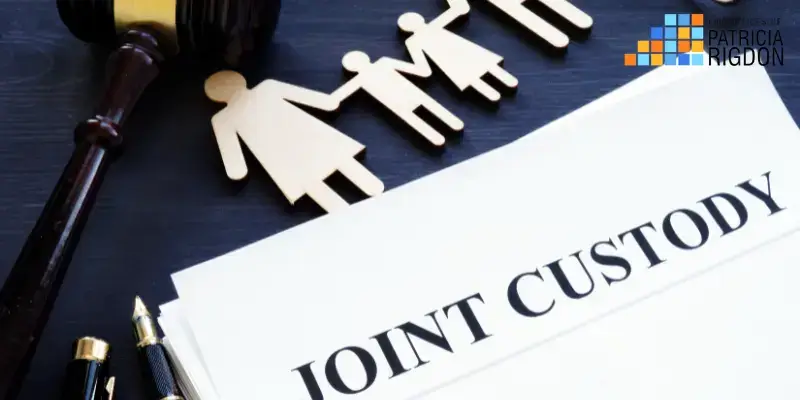Pasadena Joint Custody of Children Attorney
Pasadena, California Joint Custody of Children Lawyer
When California parents are granted joint legal custody of a child, both individuals have the right and responsibility to make important decisions on that child’s behalf. This could include decisions related to the child’s health, education, or welfare.
Joint custody agreements don’t necessarily mean that you’ll need to run every decision by the other parent. If you currently have physical custody of the child, it’s acceptable for you to make routine decisions about the child’s day-to-day life and activities. However, both parents must consent to any major decisions or changes to the child’s care. Although most healthcare decisions fall under this category, there are exceptions, such as emergency medical or dental care.

Can Both Parents Have Legal Custody in California?
Both parents can have legal custody of a child in California. This is known as joint legal custody or shared custody.
When parents share legal custody, they aren’t required to agree on every decision about their child’s care. Sometimes a parent will be able to make decisions on their own, even if the other parent disagrees. To minimize the possibility of returning to court, both parents should communicate openly with one another about the care of their child.
Alternatively, under certain circumstances, one parent may be given sole legal custody of the child.
Are Joint Physical Custody and Joint Legal Custody the Same?
Although many parents share physical and legal custody of their children, these terms aren’t synonymous.
Simply put, physical custody refers to the child’s residence. When parents have joint physical custody of a child, that child will spend time residing with both parents. Joint physical custody arrangements don’t always take the form of a 50/50 split. Depending on the child’s best interests, they may spend more time with one parent than the other.
When a parent has sole or primary physical custody over their child, the other parent will generally receive visitation time.
On the other hand, legal custody refers to a parent’s right and responsibility to make major decisions about the child’s care and well-being. These decisions could pertain to the child’s education, religious organizations or affiliations, and the medical offices or facilities where they receive care.Can You Get Joint Custody Without Going to Court?
Child custody agreements can be arranged outside of a courtroom. While a parenting plan can be determined in court, parents can also create a plan either on their own or with their respective attorneys. If the parenting plan is drafted outside of a courtroom, it must be brought before a judge for approval.
If you’re looking to create a parenting plan involving joint legal custody without going to court, it’s essential that you work with a California joint custody of children lawyer. A child custody attorney can help ensure that the plan is fair and is in the child’s best interest before presenting it to a judge for approval.
Mediation is an alternative option to keep time in the courtroom to a minimum. Mediation is a low-cost and often low-stress option for parents on civil and agreeable terms. However, if you’re unable to communicate amicably and honestly with your ex-spouse or co-parent, mediation may not be the best option.
What Is the Process of Getting Joint Custody in CA?
Whether the child custody agreement is created in or outside of court, it must be brought to a judge to make it legally enforceable. If both parents agree to the custody arrangement, the judge will review and sign the agreement. Once the judge has signed the custody agreement, the parents will be able to file the agreement with the court clerk. If one parent violates the custody agreement, the other will have the right to pursue legal action against them.
If you’re unable to reach an agreement on your own, a judge may order you and the other parent to attend mediation through Family Court Services. If an agreement still cannot be reached through mediation, your custody arrangement and schedule will be determined by the judge. Depending on what the judge believes is in the child’s best interest, their determination could still result in a joint custody arrangement of the child.
Sometimes, a child custody evaluator will be appointed by the judge. Once a custody evaluation has been performed, a parenting plan can be recommended. If a parent wants an evaluation to be performed but the judge hasn’t ordered one, that parent will be able to make a request. However, requests for a custody evaluation won’t always be granted.
Do I Need a Lawyer to File for Joint Legal Custody in Pasadena?
Although it’s possible to draft a parenting plan or pursue joint legal custody without a lawyer, navigating this process without the assistance of a legal team can be overwhelming. Without a family law attorney, it’s far more difficult to ensure that the agreement is fair. A lawyer can also help increase the likelihood that a judge will approve your agreement.
Even if both parents agree to a custody arrangement and schedule, the process may still be stressful and time-consuming. An experienced legal team can assist you through the required paperwork and court schedule.
Top Pasadena, CA Joint Child Custody Attorney
If you’re looking to have your parenting rights protected, reach out to the Law Offices of Patricia Rigdon for expert legal assistance. Whether you’re establishing a new joint custody agreement, making a modification to an existing agreement, or need assistance enforcing a custody agreement, Patricia has the experience and legal knowledge you need.
Parents going through a divorce or custody dispute should contact the Law Offices of Patricia Rigdon at their earliest convenience to increase the chances of a fair custody agreement. Simply fill out our convenient contact form or call our office today to schedule a consultation.
DO YOU NEED LEGAL HELP?
The mediation process provides a more peaceful alternative to fighting about your personal issues in court. Read more to see if divorce mediation is right for you.
Collaboration brings attorneys, mental health professionals & accountants together to resolve family issues without going to court. Read more to see if a Collaborative Divorce is right for you.
Litigation in the divorce process involves submitting issues to family court in order to resolve them with the assistance of a judge, if both parties cannot reach an agreement in other ways. Read more to see if Divorce Litigation will be needed.


